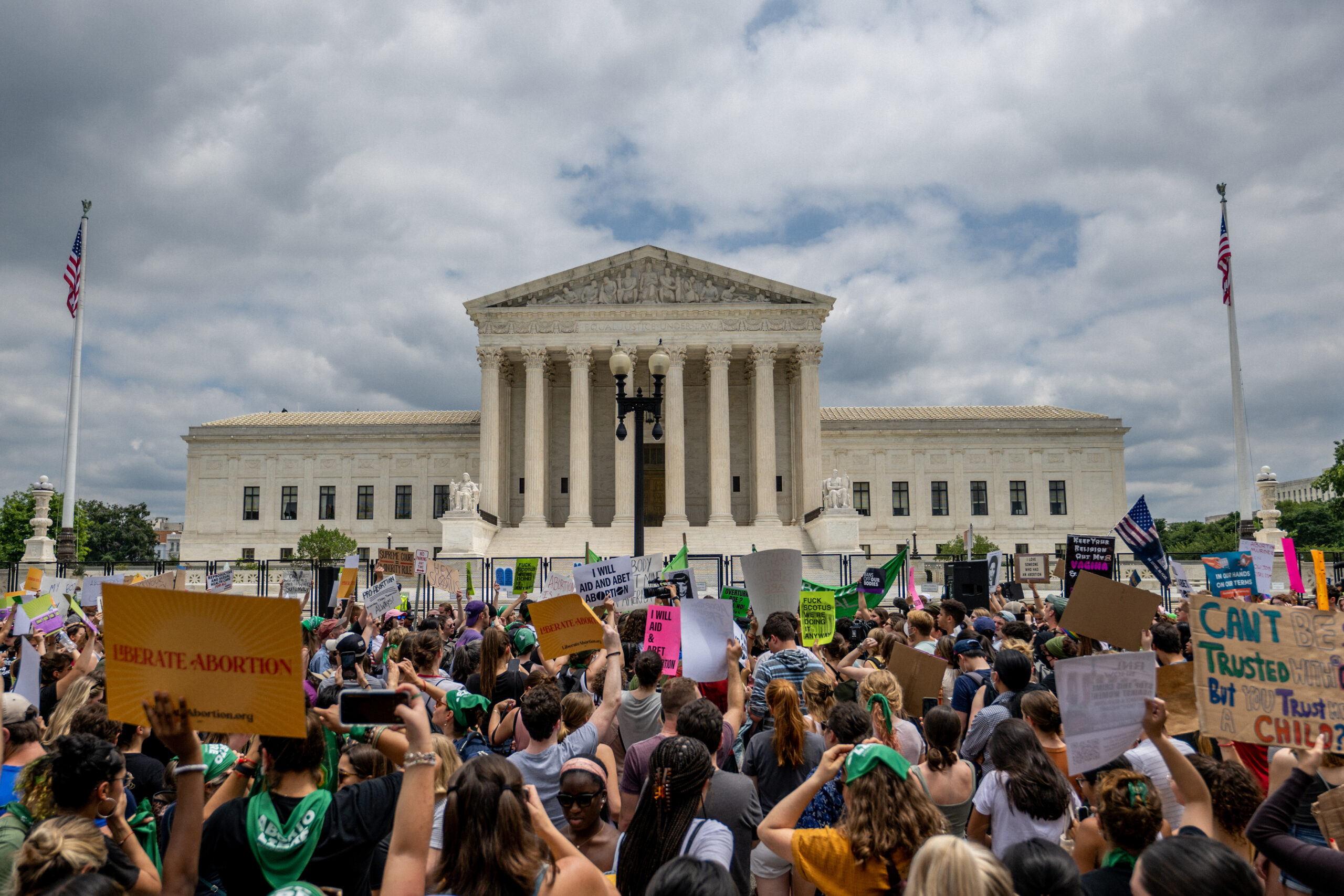
The overturning of Roe v. Wade in 2022 rolled back federal abortion rights protections, leaving abortion policy to state lawmakers.
In response, states like Maryland have expanded protections for people seeking abortions. In May, Gov. Wes Moore (D) said Maryland as a “safe haven” for residents of more restrictive states. Other states have restricted access to abortion following the overturning of Roe v. Wade.
But during a virtual discussion Thursday, members of Maryland Latinos Unidos discussed how restricted access to abortion and sexual health care around the world may have unintended consequences that Maryland and others States can take this into account when developing their own policies.
“Governments around the world are making important decisions about women’s ability to control their bodies and their lives,” said Gabriela Lemus, executive director of Maryland Latinos Unidos. “Some decisions are very restrictive, leading to mental health problems, physical problems and even suicide. »
“This can lead some women to make very difficult choices, drastic choices, to maintain their autonomy and personal sovereignty, for the benefit of themselves and their family. They are looking between migrating, leaving or even sterilizing themselves,” she said.
Although it was not addressed during Thursday’s conversation, transgender men and many non-binary people are also affected by policies that expand or restrict reproductive health care.
Maryland Latinos Unidos is a coalition of diverse Maryland-based nonprofit organizations that advocate for the state’s Latino and immigrant populations.
Kelly Umaña, senior health equity assessment and monitoring specialist at Maryland Latinos Unidos, said her interest has always been in advocating for critical health topics, particularly for the Latino migrant community, because his family is originally from El Salvador.
In her doctoral program, Umaña examined the impact of restricting access to abortion in El Salvador and said many women aged 15 to 49 were choosing sterilization as a method of birth control over contraception .
El Salvador prohibits abortion in all circumstances, and those who seek an abortion can be imprisoned for it. according to an Associated Press report. Umaña noted that some of the lessons she observed in her research can also be taken into account in Maryland.
“We have a huge Latino community here in the United States, especially in Maryland, where there is a huge Salvadoran diaspora,” she added.
“What are the repercussions of a decline in protected health? What that looks like in education and economic opportunity. What does that look like in terms of human empowerment that we would like to have and making decisions for ourselves,” she said.
Bridget Kelly, a sexual and reproductive health advocate and doctoral student at George Washington University’s Milken Institute for Public Health, volunteered with the Peace Corps in Ethiopia and said her experience there helped her realize “how important it is to have access to good menstrual health”. is to other questions.
She said it’s difficult to have conversations about reproductive health care, not only in Ethiopia but also in the United States.
“There has been this confusion of equating reproductive health with just abortion. And I want to say that abortion is a very essential part of sexual and reproductive health and rights, but it’s not the only one. And so when we do that, we overlook and ignore other really important things that maybe aren’t so controversial and taboo,” Kelly said.
Some of the other topics that fall under “reproductive health care” are maternal health and mortality, infertility issues, prevention of sexually transmitted infections and reproductive cancers, Kelly said.
Kelly pointed out that rolling back reproductive rights would have unforeseen implications.
“An issue that is not often discussed but is coming up more and more is the use of contraceptives, certain hormonal contraceptives to manage menstrual disorders. It’s like heavy menstrual bleeding or endometriosis… which can prevent people from being able to go to work or go to school,” she said.
Kelly also noted that some lawmakers in other states want to ban certain types of birth control and that if these restrictions are put in place, people with menstrual disorders may not be able to use birth control to manage their symptoms.
She said people who advocate for access to reproductive and sexual health in their daily lives will indirectly help migrant populations.
“These are other issues that we can work on and move the whole movement forward,” Kelly said.
“These international policies…or even national ones, may seem out of reach,” she said. “I hope that we can begin to consider sexual and reproductive health and rights as a prerequisite or a fundamental aspect of growth education, health care and economic empowerment,” he said. she adds.
Kelly posed a series of questions as examples of potential areas for future legislation.
“I think about: What do the provider demographics look like? Are there enough Latino providers capable of providing the services needed to ensure women have access? People should work to make medical schools more accessible to more populations,” she said.
“If you work in a school, are there menstrual products available? Is there comprehensive sex education? Is this something you can defend? If you work on economic empowerment… do women get maternity care leave? » said Kelly.
Veronica Cool, at-large member of the Maryland Latinos Unidos executive committee, said legislative action could be considered.
“We need, as a group, to be much more strategic. We have friends in the legislative field. I think we need to come up with more bills that ensure access. We have to look at the basics,” Cool said.
She said she would be interested in legislation requiring a statewide baseline standard to ensure widespread access to reproductive and sexual health care, such as available menstrual pads and nursing home accommodations.